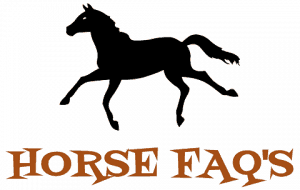When it comes to owning a horse, one of the most important considerations is its lifespan. The length of a horse’s life can greatly impact the investment of time and money that goes into caring for it. While there are many factors that can influence a horse’s lifespan, such as genetics and workload, the breed of the horse can also play a significant role.
In this article, we will take a closer look at five hardy horse breeds known for their longevity. We will explore the unique characteristics of each breed, such as their physical attributes and temperament, as well as the veterinary care and nutrition they require to maintain a healthy and happy life.
By understanding the factors that contribute to a horse’s lifespan, owners can make informed decisions when choosing a breed and caring for their equine companion.
Factors Affecting Lifespan
The lifespan of horses is influenced by several factors, including breed, genetics, diet, and workload. Smaller breeds generally live longer than larger breeds. Additionally, veterinary care and nutrition have contributed to an increased average lifespan of 25-30 years.
Dietary requirements and exercise routines are also important factors in horse lifespan. Horses require a balanced diet that meets their specific nutritional needs, which vary depending on factors such as age, breed, and workload.
Exercise is also important for maintaining a healthy weight and preventing health problems such as lameness and obesity. A well-planned exercise routine can contribute to a longer, healthier lifespan for horses.
Breed Characteristics
Versatility is a common characteristic among the Arabian, Appaloosa, Icelandic, and Quarter horse breeds, but what sets Icelandic horses apart is their ability to perform five gaits. These gaits include the walk, trot, canter, and two additional gaits called the tolt and pace.
The tolt is a four-beat gait that is smooth and comfortable for riders, while the pace is a lateral gait that is faster than a trot. This ability to perform multiple gaits makes Icelandic horses well-suited for a variety of activities, including trail riding, dressage, and even racing.
In terms of health and maintenance, Icelandic horses are generally hardy and easy to care for. They are adapted to living in harsh environments and can withstand cold temperatures and inclement weather. However, like all horses, they require proper nutrition, regular veterinary care, and exercise to maintain their health and well-being.
With proper care, Icelandic horses can live long, healthy lives and continue to excel in a wide range of activities.
Veterinary Care and Nutrition
Proper veterinary care and nutrition are essential for maintaining the health and well-being of Icelandic horses. These horses are generally hardy and long-lived, but like all animals, they are susceptible to certain health issues. Preventative measures, such as regular check-ups and vaccinations, can help to keep Icelandic horses healthy.
Some common health issues that owners should be aware of include colic, laminitis, and skin conditions. Regular dental care is also important for maintaining healthy teeth and preventing digestive issues.
Feeding and supplements are also important considerations for maintaining the health of Icelandic horses. These horses have a unique digestive system that requires a high-fiber diet. Owners should provide their horses with a diet that is high in hay or other forage, and avoid feeding them large amounts of grain.
In addition to a healthy diet, supplements can help to support overall health and well-being. Supplements such as probiotics, joint supplements, and omega-3 fatty acids can be beneficial for Icelandic horses. Owners should work closely with their veterinarian to develop a feeding and supplement plan that is tailored to their horse’s individual needs.
Frequently Asked Questions
Are there any environmental factors that can affect a horse’s lifespan?
Like humans, horses are influenced by climate impacts and breed-specific care. Environmental factors such as temperature, humidity, and access to clean water affect their health and lifespan. Proper nutrition, exercise, and veterinary care also play a crucial role in maintaining their well-being.
Can the lifespan of a horse be shortened by excessive exercise or workload?
There is limited research on the impact of exercise intensity on a horse’s lifespan, but excessive workload can lead to injuries and health complications that may shorten their life. Some breeds may be more susceptible to these issues, but further study is needed.
Are there any common health issues that can affect the lifespan of the listed horse breeds?
Common health issues and genetic predispositions can affect the lifespan of Arabian, Appaloosa, Icelandic, and Quarter horses. These include colic, laminitis, and genetic diseases. Veterinary care and proper nutrition can help prevent and manage these issues.
Do horse breeds with longer lifespans require different types of nutrition than those with shorter lifespans?
The relationship between longevity and diet, as well as genetics and lifespan, is complex in horse breeds. There is no evidence to suggest that breeds with longer lifespans require different types of nutrition than those with shorter lifespans. Factors affecting lifespan include breed, diet, genetics, and workload. Veterinary care and nutrition have increased average lifespan to 25-30 years, but individual horses may live longer or shorter than average. Quarter horses are subject to genetic diseases.
Can the lifespan of a horse be affected by the quality of care and handling it receives throughout its life?
It’s ironic that despite horses being known for their hardiness, neglectful care and handling can significantly shorten their lifespan. The importance of preventative healthcare and genetic factors play a role in determining lifespan.

